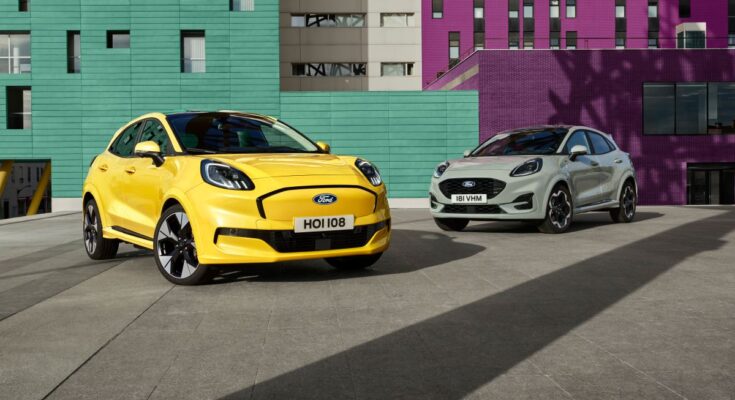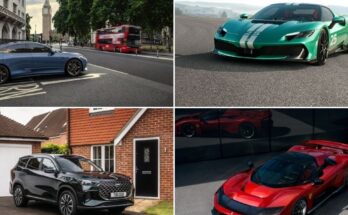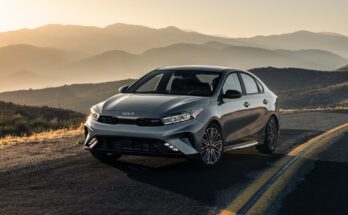With half the year’s data on UK new car registrations now available, we’re getting a good picture of the most popular new cars of 2025 — and as you might have guessed, compact SUVs are dominating sales.
In terms of what fuels them, petrol models still significantly outsell everything else, with 46 per cent of the market over the first six months of the year, but electric cars continue their rise and have represented a quarter of new car sales over the same period.
EV sales still need to rise to meet toughening quotas on the proportion of electric vehicles carmakers sell, with any brand that shifts more than 2,500 cars or commercial vehicles over the 12 months of 2025 required to ensure that 28 per cent of them are pure electric. The Society of Motor Manufacturers and Traders (SMMT), which represents the industry, expects the target to be missed without incentives for buyers; it has forecast a figure of below 25 per cent this year.
It’s unlikely any car company will have to pay the fines for each internal combustion engine (Ice) car sold above the quota, due to “flexibility” built into the system (based on overall emissions from fleets of cars sold over previous years), but manufacturers are still under immense pressure to sell more electric vehicles and getting close to the targets has meant heavy discounting by some brands.
• Read more expert reviews, news and insights on cars and motoring
In June registrations of battery electric vehicles jumped 39.1 per cent to 47,354 units, and plug-in hybrid electric vehicles (PHEVs) grew 28.8 per cent to 21,382 units. New hybrid electric vehicles fell out of favour somewhat, with demand dropping by 8.5 per cent to 23,835 registrations.
Mike Hawes, chief executive of the SMMT, said: “That EV growth … is still being driven by substantial industry support with manufacturers using every channel and unsustainable discounting to drive activity, yet it remains below mandated levels. As we have seen in other countries, government incentives can supercharge the market transition, without which the climate change ambitions we all share will be under threat.”
The UK’s top 10 most popular new cars of 2025
But what are the UK’s bestselling new cars so far in 2025? Here are the top ten most popular models of the year to date, according to the SMMT’s registration figures.
1. Ford Puma: 26,355 registrations in 2025 to date
Although it didn’t have a lightning start to 2025, the Ford Puma had a very big month for sales in March and shot to the top of the 2025 bestsellers list. It remained the most popular car in the UK after the June registration figures were released.
The Puma’s success is arguably no surprise as Ford’s entry-level compact crossover topped the sales charts for both 2023 and 2024 too. It is based on the excellent (but now discontinued) Fiesta and is therefore one of the best-handling and most practical cars in its class.
In his review of the Puma, Jeremy Clarkson said he loved the washable boot (known as the “megabox”) and noted that the feature seemed to be designed by “an actual person who leads an actual life”.
The Puma’s positive reception by critics and public alike helped to convince Ford of Europe to end sales of the less profitable Fiesta — which joined on the scrapheap other former sales titans the Mondeo and Focus — and plough ahead with the new pure-electric Puma Gen-E, , which Driving reviewed recently. That car adds to the electric line-up alongside the Mustang Mach-E, new Capri and new Explorer. Quite the changing of the guard.
2. Kia Sportage: 23,012 registrations
The Kia Sportage family SUV was relaunched in 2022, getting a new chassis and engine line-up along with more modern styling. A refreshed model with cosmetic changes is on the way this year but the interior quality of the current version is still excellent and the combined 12.3in digital displays give the cabin a technologically advanced look.
At the top of the Sportage range is a plug-in hybrid model developing 261bhp through its combination of 1.6-litre petrol engine and electric motor. A non-plug-in hybrid is available in this generation Sportage, as well as mild-hybrid petrol models and a diesel, so all buyers will be catered for whatever their fuel preference.
It’s up against polished rivals such as its cousin, the Hyundai Tucson, as well as the Volkswagen T-Roc, Nissan Qashqai and Ford Kuga, so competition in this sector is fierce, and that makes the fact that it was the second bestselling car of 2024 — and the most popular car of all in January, February and April this year — all the more impressive.
3. Nissan Qashqai: 22,085 registrations
The Nissan Qashqai is enduringly popular: it was the UK’s overall bestselling car in 2022, the second in 2023 and the third in 2024. It also topped the sales charts in June this year.
The Qashqai helped to popularise the crossover genre, having a bigger impact on the types of cars we drive than almost any other car launched this century. SUVs and crossovers now dominate sales, as the top ten demonstrates.
The current Qashqai launched in 2021 with a hybrid “e-Power” variant, clever technology, a fresher design and more upmarket interior, and we liked it enough to name it our Small SUV/Crossover of the Year. It was refreshed last year, with updated styling and interior tech, plus a new specification called N-Design.
There’s no denying that, whether buying new or used, the Qashqai is a decent and able family car, with good fuel economy, smart looks and lots of tech at an affordable price. Plus it’s built in Sunderland.
• Nissan Qashqai review: Britain’s bestseller gets some EU-compliant tweaks
4. Vauxhall Corsa: 20,128 registrations
The Vauxhall Corsa supermini started 2024 strongly but finished the year outside the top ten. The same pattern may occur this year too, as sales of popular high-riding SUVs gather pace, though Vauxhall continues to make the Corsa attractive with price drops and upgrades.
With Ford ending sales of its hugely popular Fiesta in 2023, it was an opportunity for rivals like the Vauxhall Corsa and Renault Clio, which relaunched last year. The current Corsa, introduced in 2019, was a good shout with handsome looks and a range of power choices under the bonnet, including a pure-electric variant. Last year the electric version was updated with range boosted to 255 miles per charge.
Now there are new, cheap and good-to-drive small electric cars, such as the Renault 4, arriving to steal some of the Corsa’s thunder, so its excellent sales at the start of 2025 may not hold up later in the year.
5. Nissan Juke: 18,527 registrations
We hadn’t often seen the Juke — the Qashqai’s smaller sibling — in the top ten before 2024, so Nissan will be delighted that it had two crossovers in the top four bestselling cars of last year and that both cars have started 2025 so strongly.
The Juke has been a bit of a Marmite car in the past but the second-generation model is an objectively more attractive proposition and the introduction of a hybrid version has clearly caught the eye of many new car buyers who value fuel economy and low running costs.
Like the Qashqai, the Juke is built in Sunderland and so the “buy local” effect may be a factor in its popularity. But the Juke drives well, appeals to young drivers, has plenty of tech and is competitively priced, which makes the compact crossover an attractive proposition for buyers of all ages.
The replacement model, announced last year and due in 2026, may continue in much the same vein.
6. Volkswagen Golf: 16,884 registrations
You might have expected the legendary VW Golf to be doing better than sixth in this list, but it goes to show how much crossovers and SUVs are now in vogue, and the current eighth-generation Golf isn’t a darling of the motoring press.
However, its frustrating touchscreen infotainment system has been much improved with the Golf Mk 8.5, launched last year, and it has sharper looks and a new plug-in hybrid option capable of 62 miles on electric power alone (officially). This has given what many still consider to be the benchmark family hatchback a boost in sales.
Look beyond the tech and the Golf has many redeeming features. The ride quality is excellent and the refinement top notch. The handling is pleasing too and it comes in many flavours including the sporty GTI and GTI Clubsport, GTE plug-in hybrid, diesel GTD and super-quick four-wheel-drive Golf R.
7. MG HS: 16,115 registrations
The MG HS, available with petrol, hybrid or plug-in hybrid power, is the brand’s rival to the Nissan Qashqai, Kia Sportage, Hyundai Tucson, Ford Kuga and many others in the crowded mid-sized crossover segment, though with prices starting at £25,995 it’s able to undercut most competitors.
The price reflects its refinement, though, and reviews show the cost savings are apparent inside, in its driving manners and under the bonnet. Still, it’s a smart-looking thing, thanks to a design refresh in 2024, and you can’t argue with its practicality, seven-year warranty or price tag.
It’s also a car from a brand owned by SAIC Motor, a Chinese state-owned company, which some British buyers might turn away from as a political choice. But plenty of buyers are more concerned with value for money than whether their car comes from an authoritarian regime.
8. Hyundai Tucson: 15,496 registrations
Hyundai’s compact crossover is the sister car to the Kia Sportage (Kia is owned by Hyundai Motor) and was refreshed in 2024, with updates to its styling and interior, making it an even more likeable model.
It comes either as a petrol, mild-hybrid (with a choice of two power outputs) or a plug-in hybrid offering an electric-only range of 39 miles (officially), meaning there’s a decent choice for car buyers not looking to go fully electric just yet. Its ride quality, handling and comfort are excellent, and well suited to pockmarked British roads.
Pricing starts at £33,080, so it’s far from the most affordable car in its class, but that reflects Hyundai’s status these days as a carmaker with some of the best tech out there, and knocking on the door of premium.
9. Volvo XC40: 15,496 registrations
The Volvo XC40 crossover jumped into the top ten after relatively strong sales in April. It’s been available in mild-hybrid, plug-in hybrid and pure-electric forms for some time, though in 2024 Volvo separated the latter from the combustion variants and called it the EX40, and removed the plug-in hybrid option.
That leaves the mild hybrid but there’s still choice for new XC40 buyers, with two fuel-sipping petrol engines available, both assisted by a small electric motor, for 161bhp or 194bhp, and in 2024 a stealthy black edition model was introduced with black alloys, a black grille and black paint.
Regardless of which version buyers choose, the XC40 offers excellent refinement, high-end audio systems and competitive practicality for its class.
10. Volkswagen Tiguan: 15,223 registrations
VW’s compact SUV was updated for 2024 with a choice of petrol, diesel and plug-in hybrid powertrains, leaving customers who want to go electric to turn their gazes towards VW’s ID range instead, since they are fully electric. It seems releasing another Tiguan with combustion power was a smart move as it made the top ten bestsellers in the first three months of 2025.
It’s not the most exciting car in its class to drive, the performance is average rather than thrilling and, with prices starting at £34,845, it’s not the most affordable option out there these days, either. But what the current Tiguan offers is plenty of luxury and technology as well as a comfortable ride, making it a grown-up choice.












